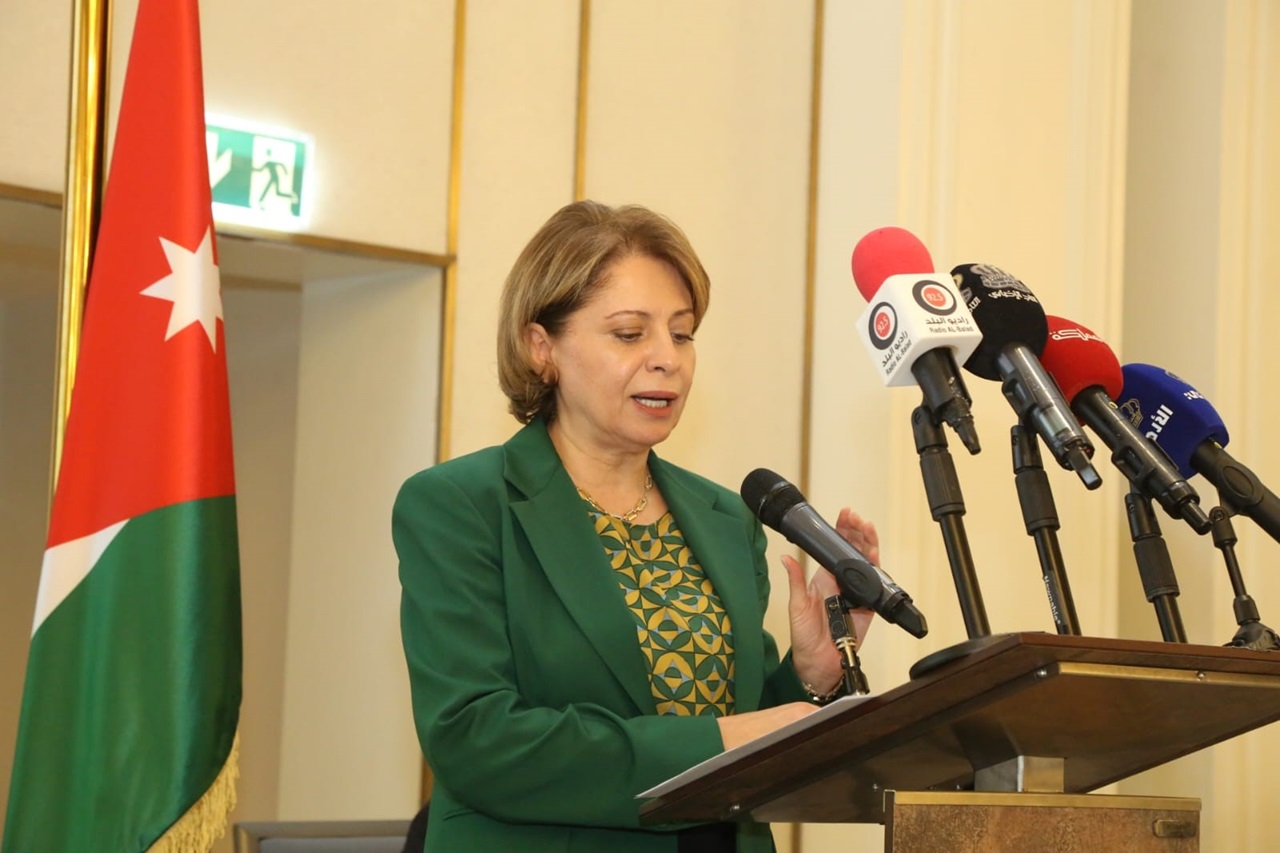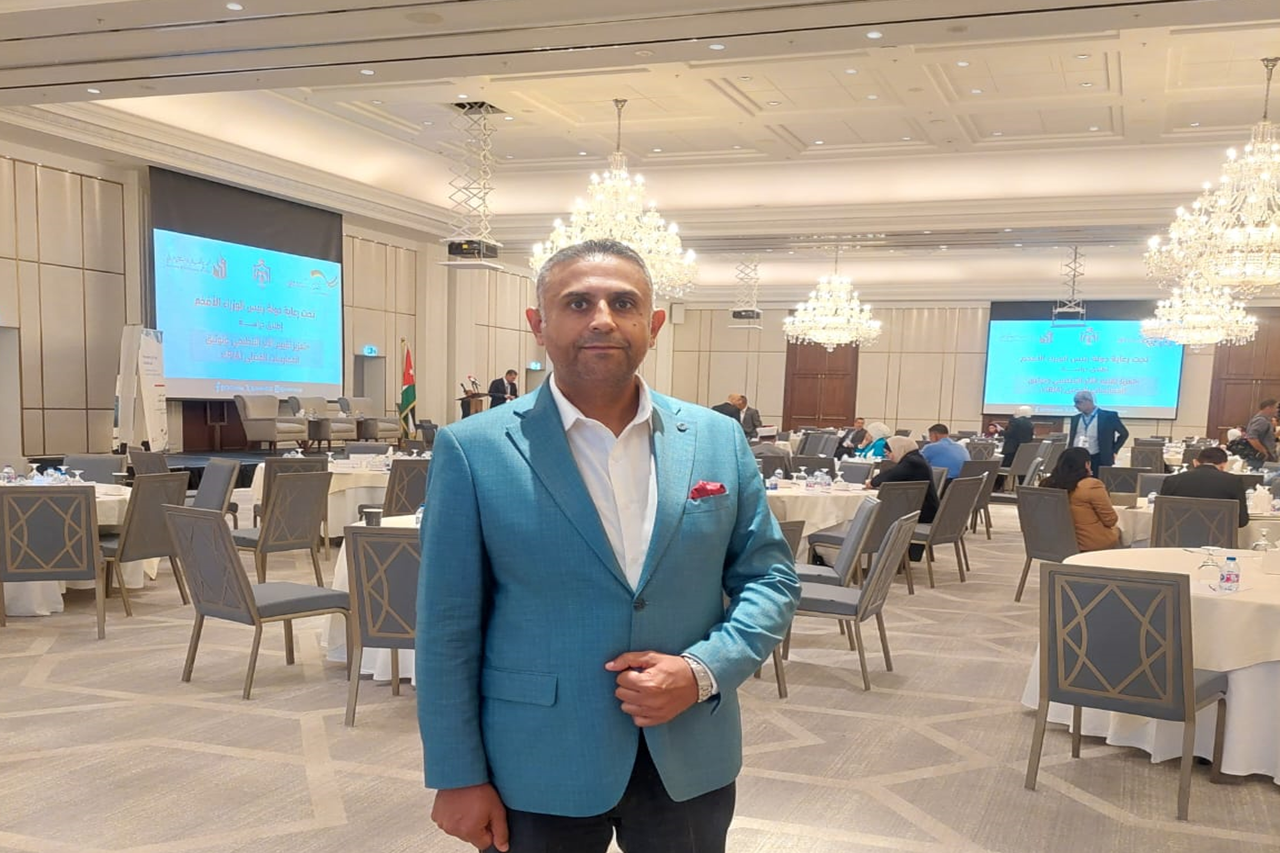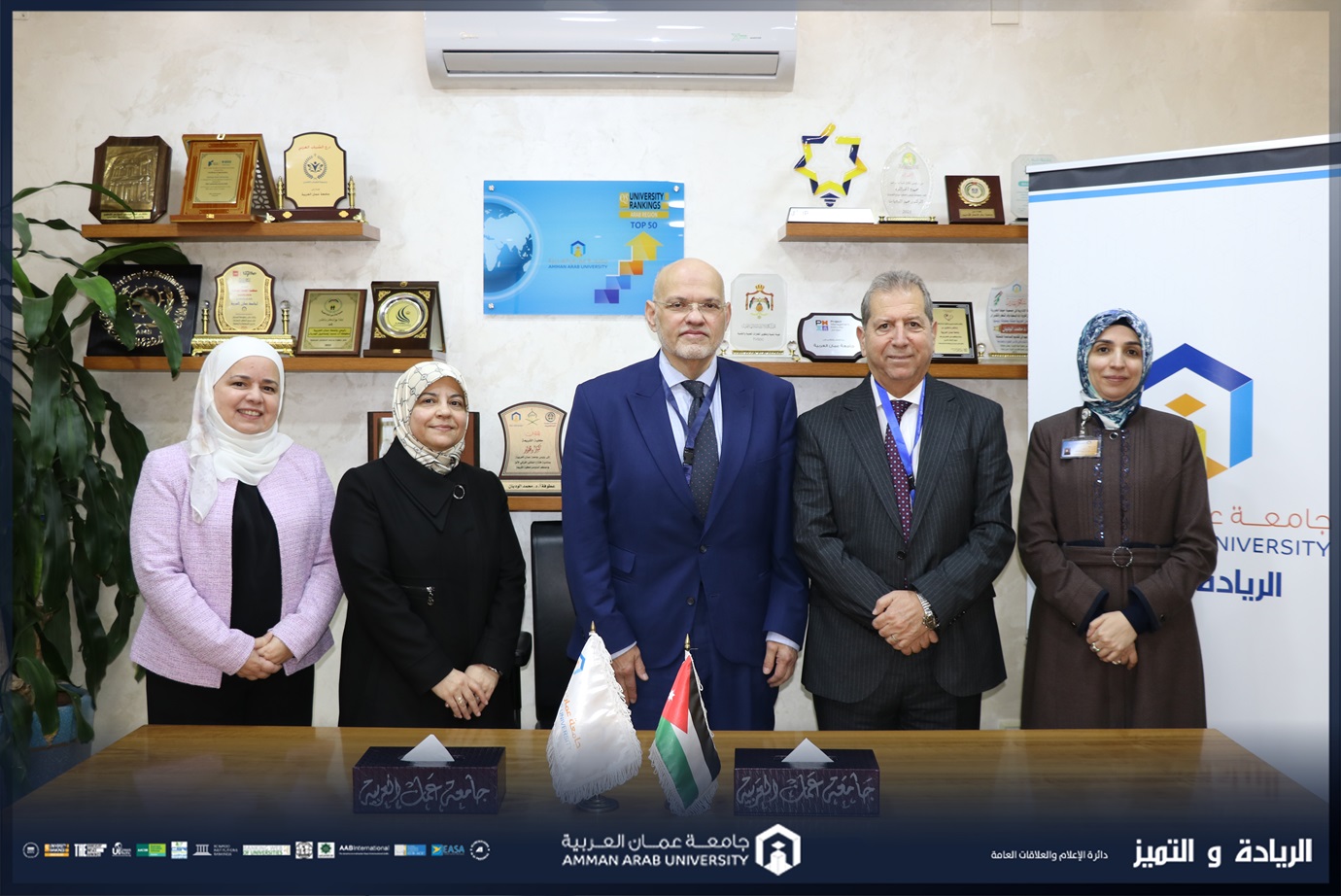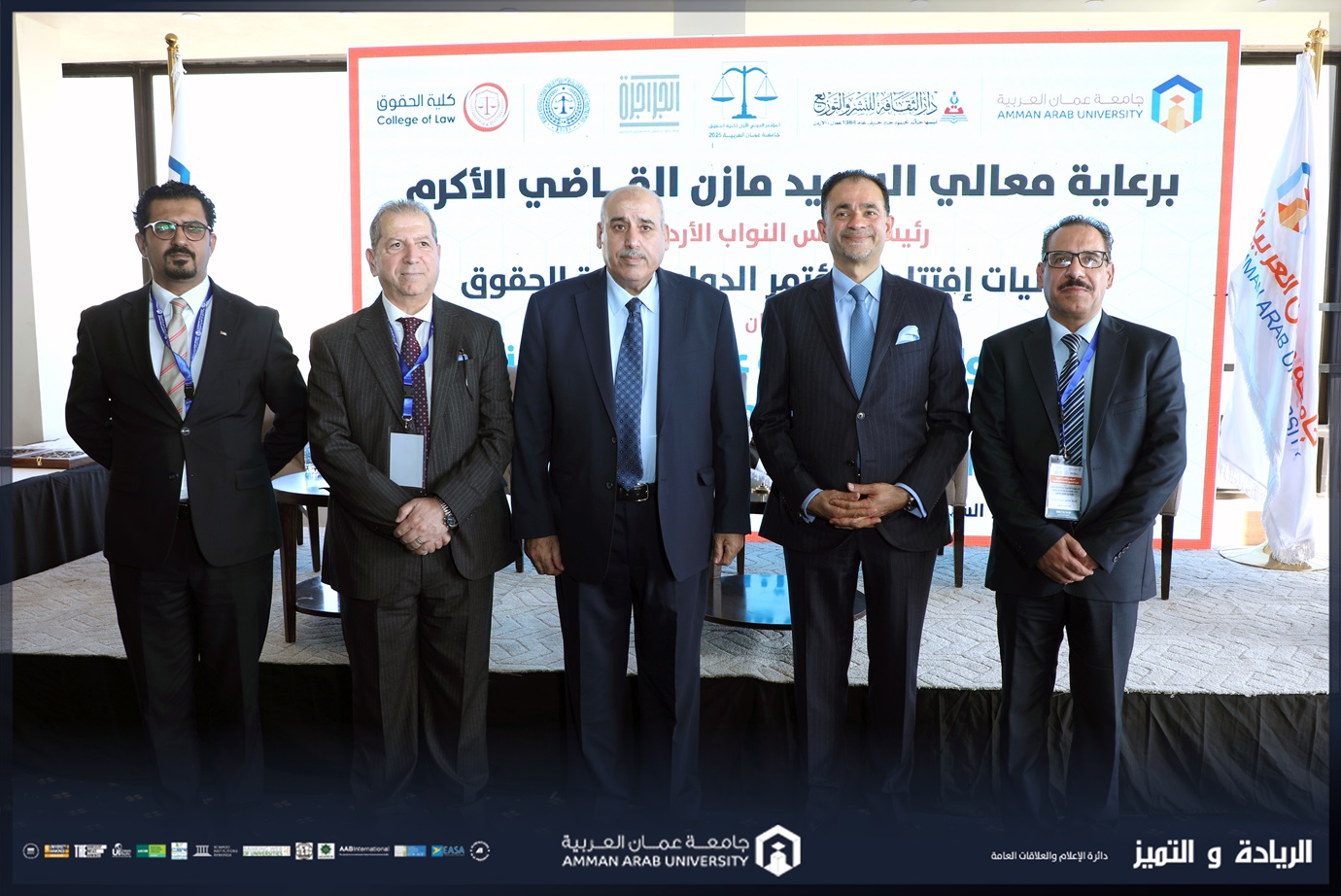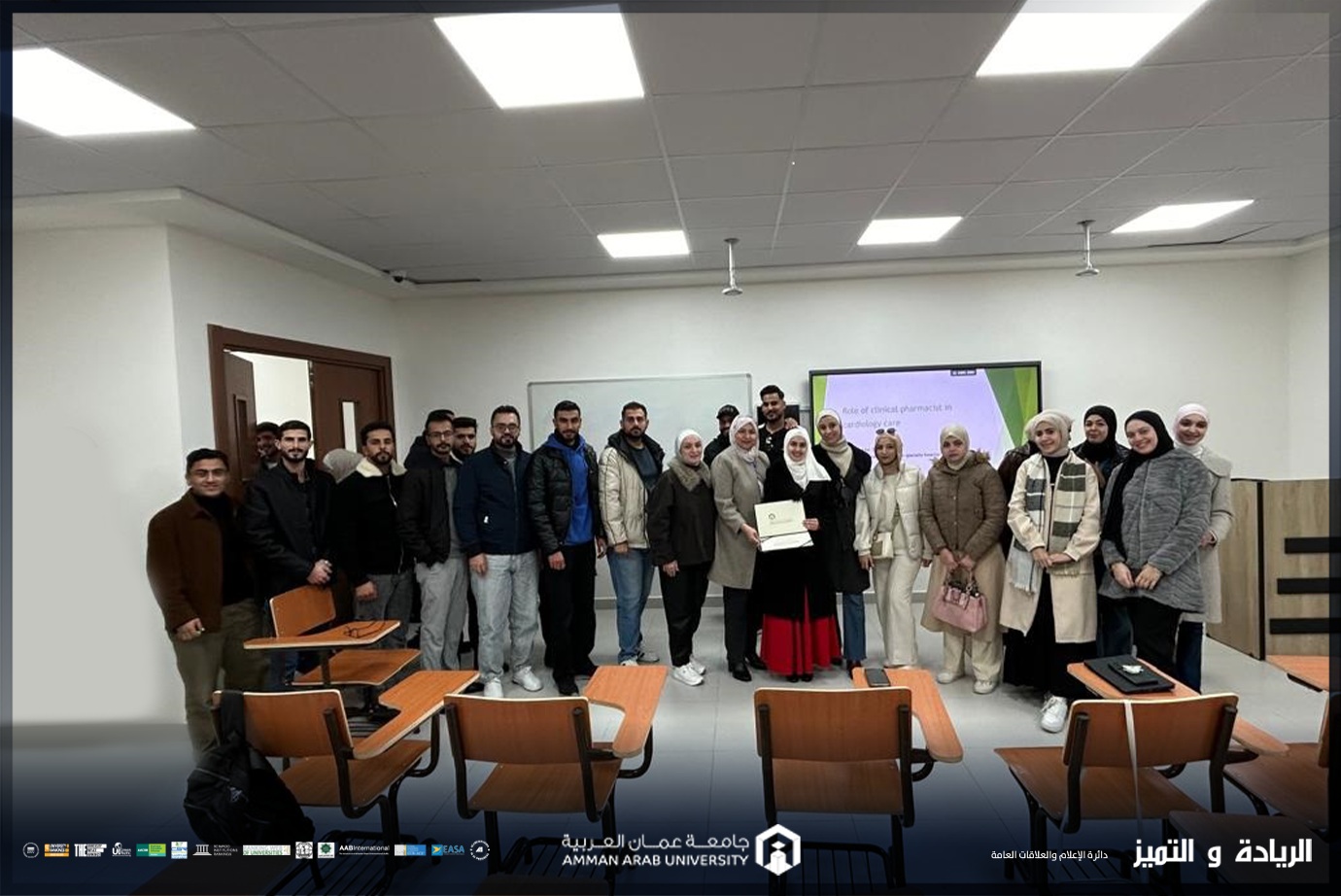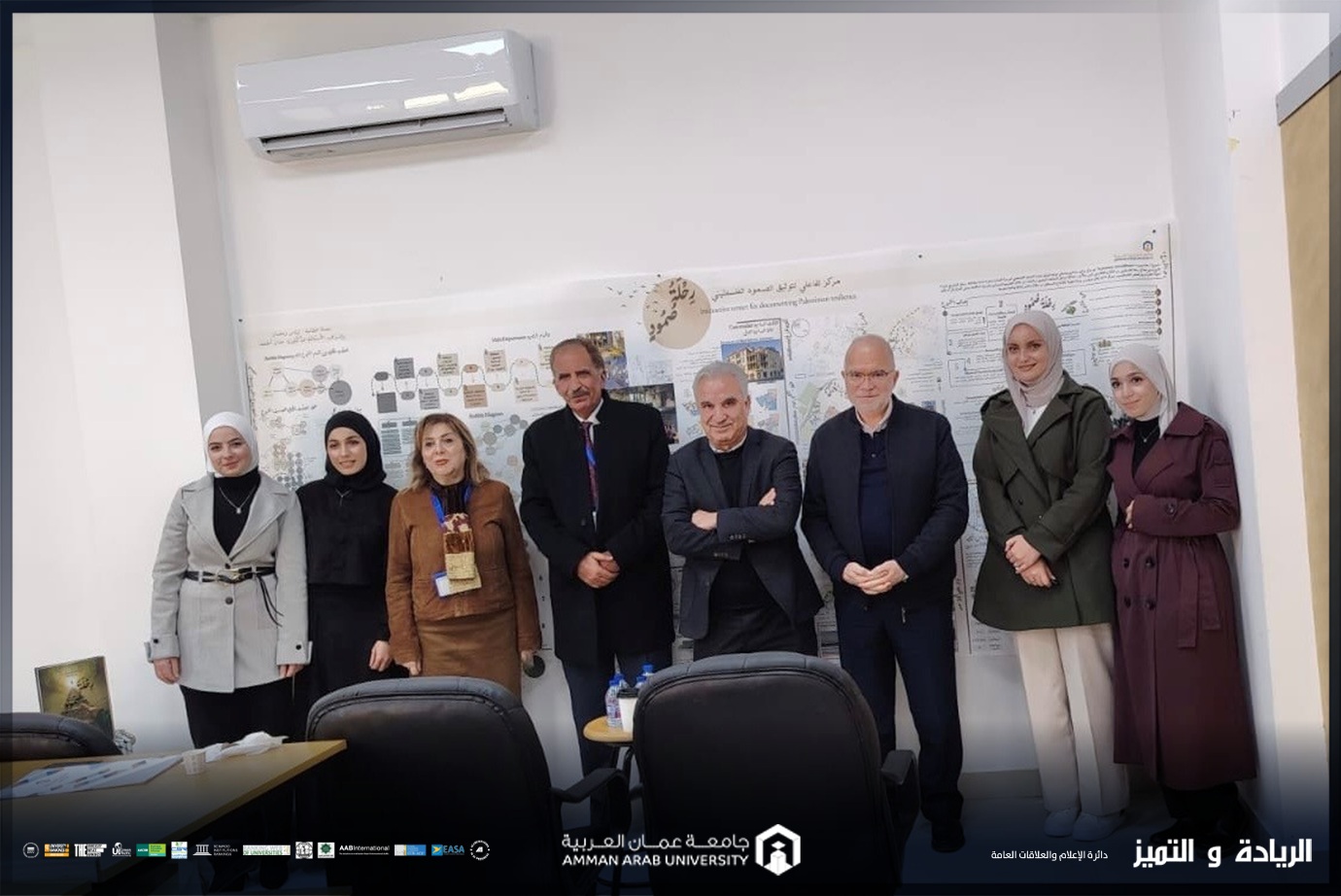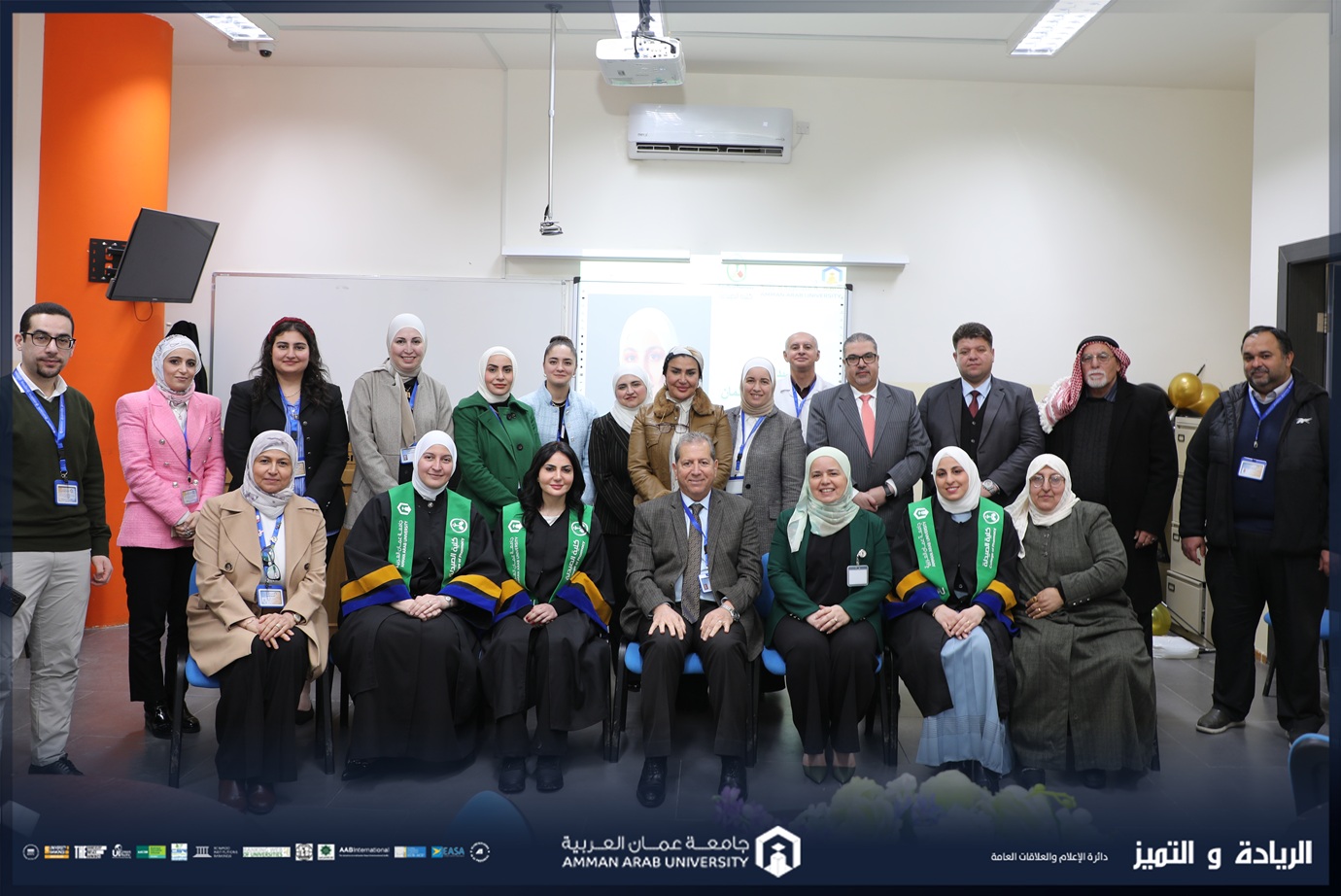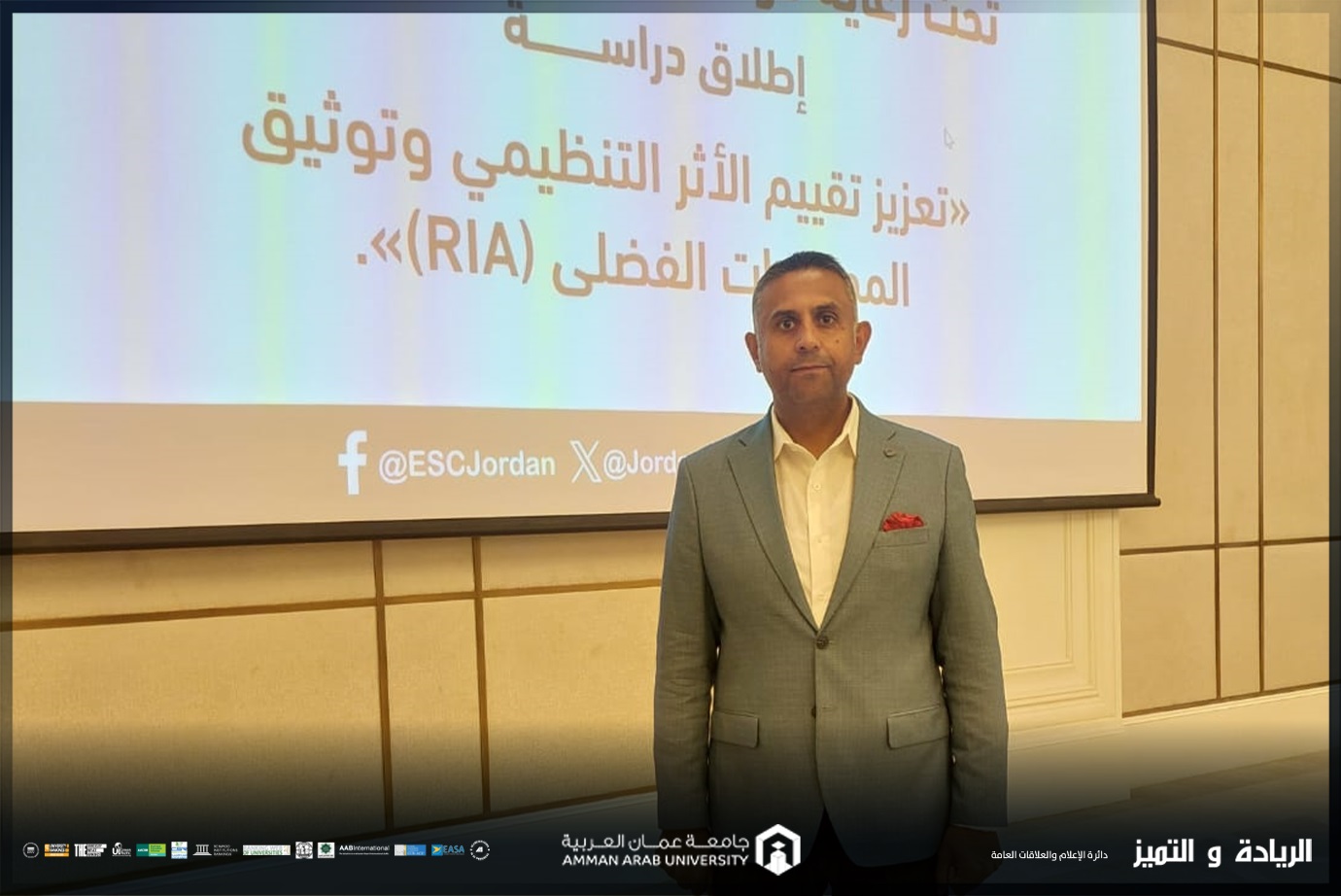
Amman Arab University (AAU) Participates in Launching the "Enhancing Regulatory Impact Assessment and Documenting Best Practices (RIA)" Study
Amman Arab University participated in the launch ceremony for a study titled "Enhancing Regulatory Impact Assessment and Documenting Best Practices (RIA)." The event was organized by the Economic and Social Council in cooperation with the German Agency for International Cooperation (GIZ) and was held under the patronage of His Excellency Dr. Jafar Hassan, the Prime Minister. Representing the Prime Minister, Her Excellency the Minister of Public Sector Development, Engineer Badriya Al-Balbeisi, attended the ceremony, alongside a number of ministers, officials, and representatives from civil society institutions and the public and private sectors.
The participation of Amman Arab University stems from its keenness to enhance its role in supporting national initiatives and exchanging expertise in the fields of innovation, thereby contributing to improved institutional performance and the achievement of sustainable development. The University was represented at the launch ceremony by Dr. Samer Ayasrah, Director of the Center for Innovation, Entrepreneurship, and Excellence.
In her opening speech, Engineer Al-Balbeisi emphasized that the study's findings and recommendations constitute a national reference that can be built upon to enhance institutional capacities in the areas of data management, analysis, and evaluation, alongside instilling a culture of evidence and knowledge-based decision-making. The opening ceremony also included a speech by Dr. Mousa Shteiwi, President of the Economic and Social Council, in which he highlighted the Council's pivotal role as a national advisory body to the government, legislative, and judicial authorities, and as a platform for social dialogue on policies and legislation. He reaffirmed the Council's commitment to continuing its support for modernization and development efforts based on a solid scientific methodology grounded in evidence and knowledge.
It is worth noting that the study aims to establish an organized and effective institutional framework for data collection, localization, and quality assurance to support Regulatory Impact Assessment processes and the formulation of public policies. The study also recommended promoting a culture of data quality, enhancing integration between systems within institutions, data auditing and review, exchanging expertise, cooperating with the Department of Statistics, adopting business intelligence tools and predictive analytics, periodically updating backup and protection systems, and expanding the use of digital platforms to enhance participation and access for various stakeholder groups.
Dr. Ayasrah stressed that the University's participation in this event aligns with its efforts to strengthen cooperation with institutions that support innovation, share expertise, and cement the role of universities in bolstering the national ecosystem for creativity and entrepreneurship.



